Normal Good Citizenship Worksheets for Ages 6-7
6 filtered results
-
From - To
Discover our engaging "Normal Good Citizenship Worksheets" designed specifically for children aged 6-7! These interactive resources instill essential civic values, helping young learners understand what it means to be a good citizen. Each worksheet includes fun activities that promote respect, responsibility, and community involvement. With colorful illustrations and age-appropriate content, students will enjoy exploring topics like helping others, sharing, and being a friend. Ideal for classrooms or home learning, these worksheets encourage discussion and critical thinking about citizenship in a friendly and relatable way. Jumpstart your child’s journey to becoming a responsible citizen with our thoughtfully crafted materials today!
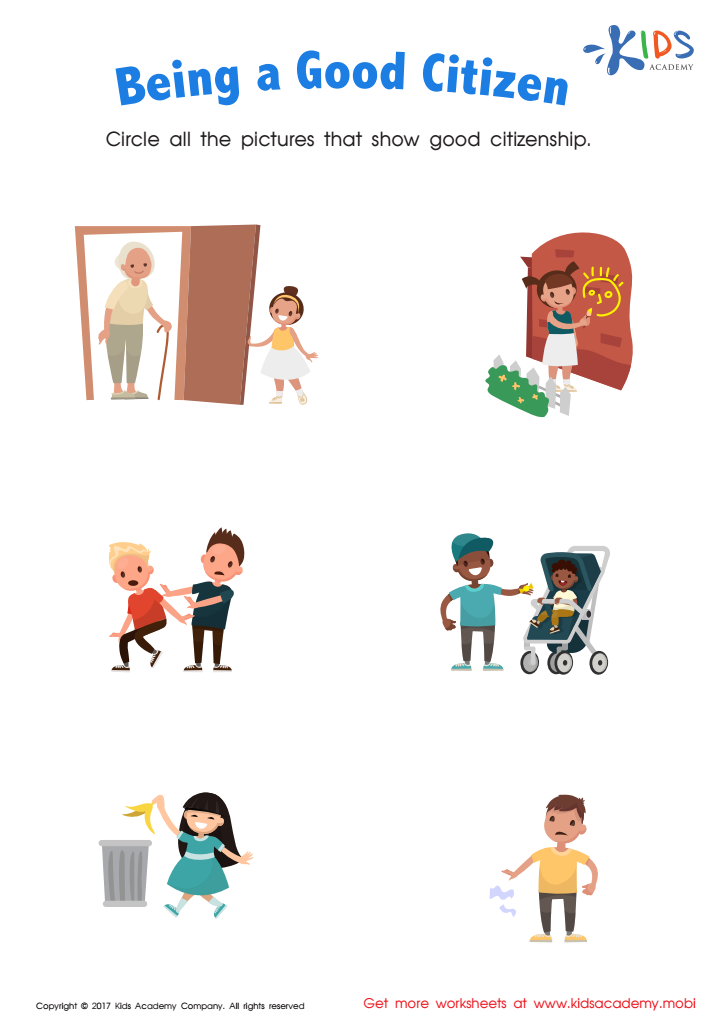

Being a Good Citizen Printable
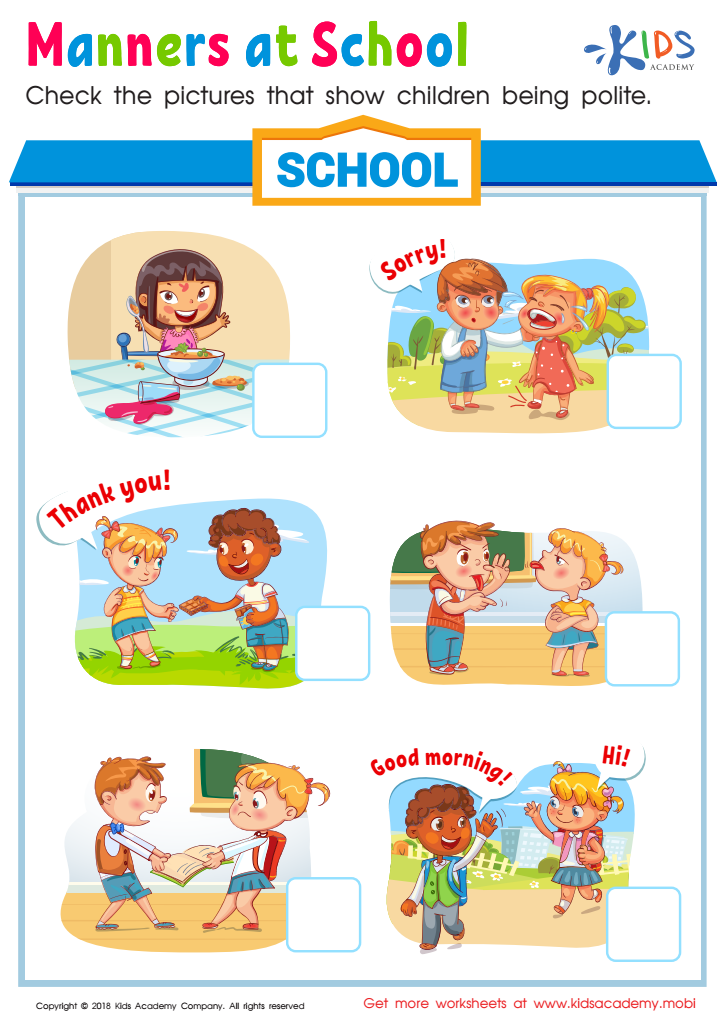

Manners at School Worksheet
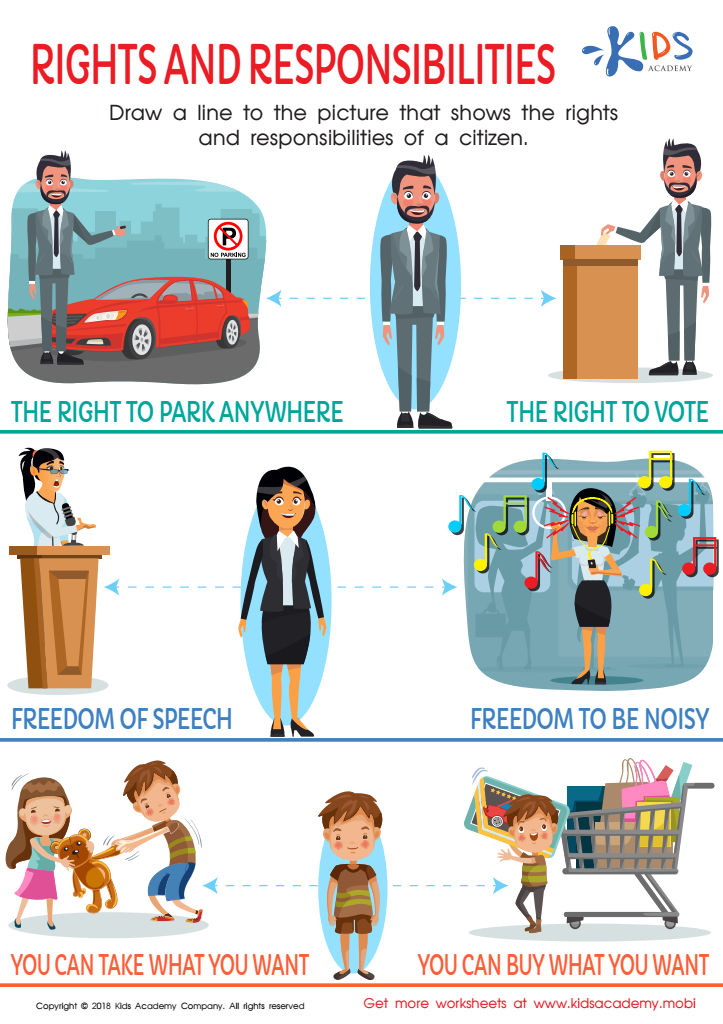

Rights and Responsibilities Worksheet
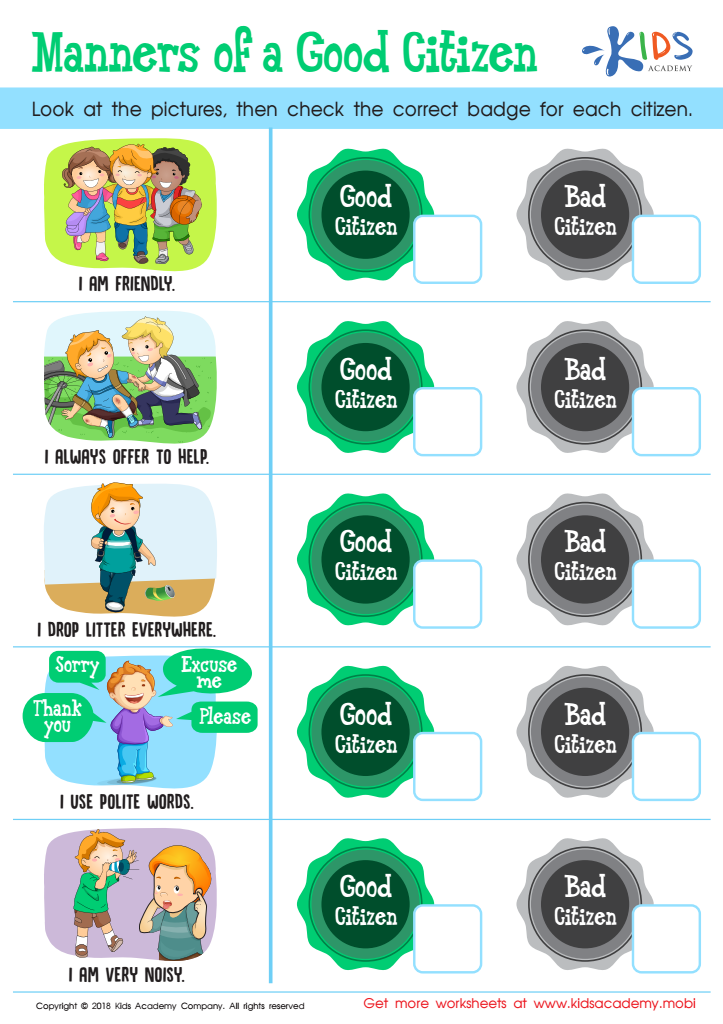

Manners of a Good Citizen Worksheet
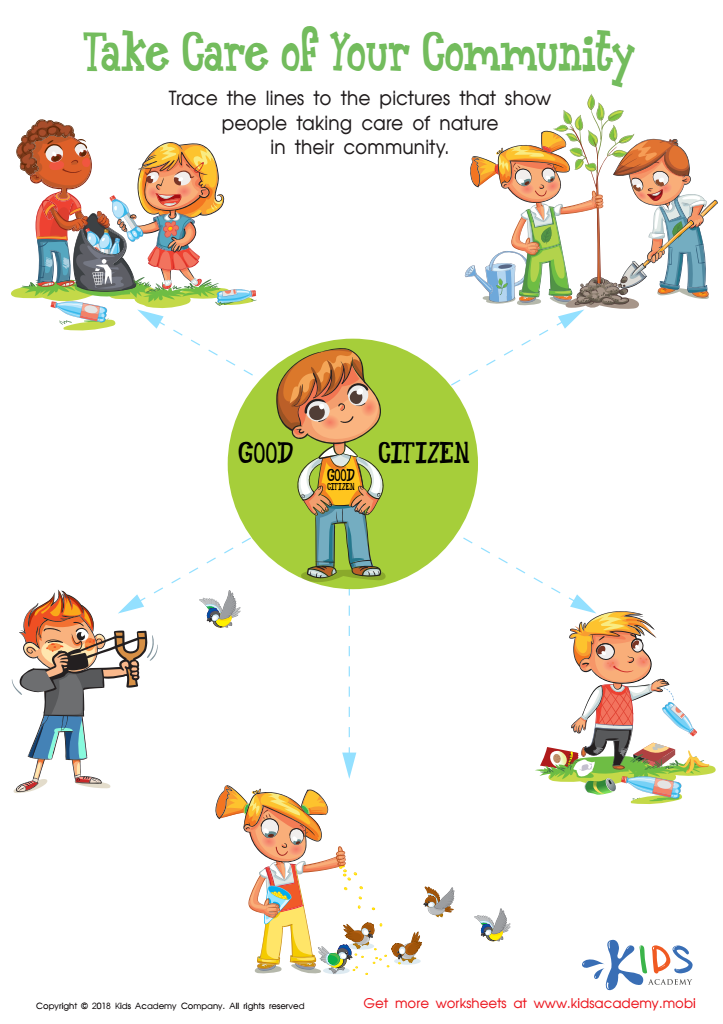

Take Care of your Community Worksheet
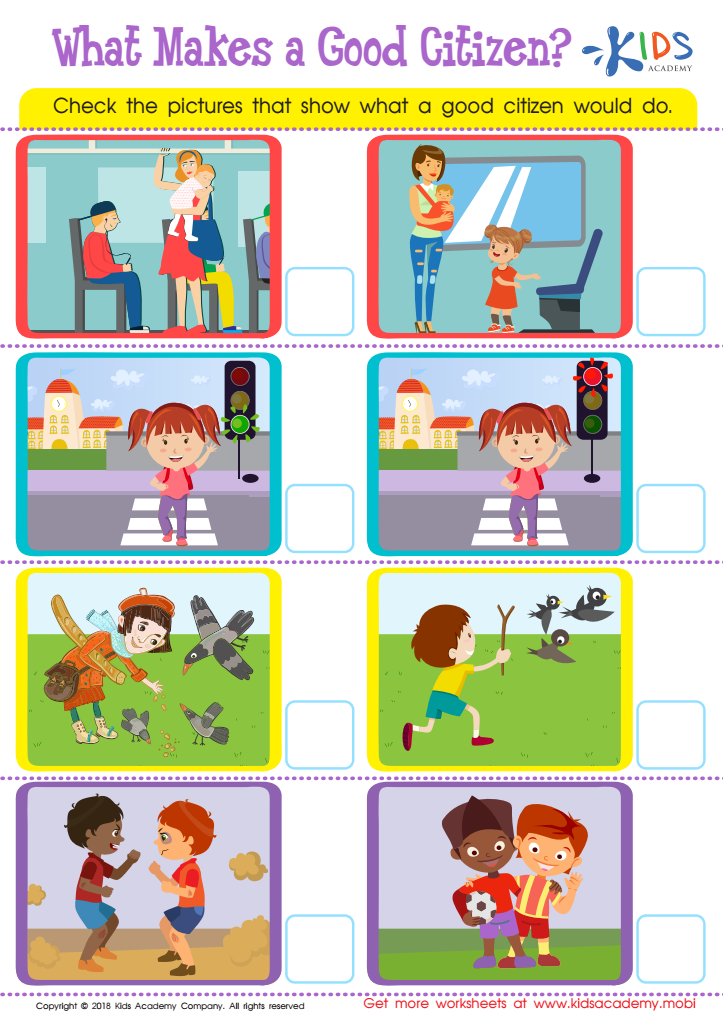

What Makes a Good Citizen? Worksheet
Normal Good Citizenship is crucial for children aged 6-7, as it lays the foundation for their development as responsible and engaged members of society. At this young age, children begin to understand the importance of community, cooperation, and respect for others. Parents and teachers should emphasize good citizenship to instill values such as empathy, kindness, and fairness—principles that will guide their interactions and decisions throughout their lives.
By promoting normal good citizenship in early education, parents and teachers help children learn how to participate effectively in group settings, whether at school or home. This is the stage where kids grasp the concept of rules and consequences, cooperation, and the differences between right and wrong. Encouraging behaviors like sharing, helping others, and communicating effectively nurtures their social-emotional skills.
Additionally, when children observe adults modeling good citizenship—by volunteering, helping neighbors, or engaging in community events—they are inspired to mimic these actions. Not only does this shape their character, but it also positively impacts the overall environment in which they learn and grow. In essence, fostering normal good citizenship at this impressionable age cultivates a more compassionate, respectful, and responsible future generation.

 Assign to My Students
Assign to My Students

















